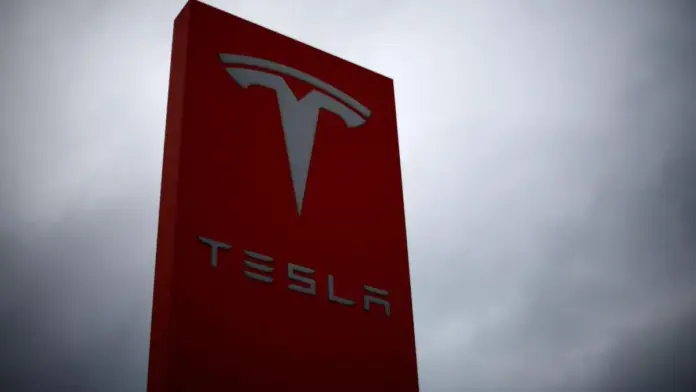Tesla is enduring one of the most volatile periods in its existence, with vehicle sales plummeting by 13% in the first quarter of 2025. This represents the biggest quarterly drop in Tesla’s history and has caused a major Tesla stock dive. Investors and analysts now wonder if Tesla can bounce back from this setback, particularly with increasing competition and public opinion against CEO Elon Musk.
Tesla’s Sales Fall: What Went Wrong?
Tesla’s stock tumble comes on the heels of a sharp drop in car deliveries, with the firm selling 336,681 cars in Q1 2025—50,000 fewer than last year at the same time. This is the steepest fall in almost three years and follows Tesla’s first-ever annual sales decline in 2024.
Some of the following factors led to this decline:
- Backlash Against Elon Musk – Protests against Musk’s leadership, specifically his position in the Department of Government Efficiency, have damaged Tesla’s brand image. Some Tesla showrooms have been targeted with demonstrations, and vandalism at Tesla charging stations has potentially deterred potential buyers.
- Increased Competition – Chinese electric vehicle manufacturer BYD continues to reign supreme in the global market, with a 39% sales increase while Tesla is struggling. BYD’s new EV technology, which provides 250 miles of range from a five-minute charge, threatens to take a significant chunk of Tesla’s market share.
- Production Halts – A software update to the Tesla Model Y shut down production at all four Tesla plants for several weeks, further restricting sales.
Also read: Dongfeng Motor & Changan Auto Merger Talks Reshape Industry
How Bad Is the Tesla Stock Drop?
The Tesla stock drop erased a large chunk of the company’s market worth. Since it set an all-time high in December, shares of Tesla have fallen 44%, unwinding the rally that occurred after Donald Trump’s election win. After the most recent sales report, Tesla shares dropped another 2% in early trading.
Wedbush Securities analyst Dan Ives has referred this fall as a “brand tornado crisis.” And, he feels it is driven by Musk’s provocative actions. Ives cautioned his followers by saying “This quarter was worse than anticipated. Musk must steer Tesla through this dark period,”
Political Divide Affecting Tesla Sales
Tesla’s reputation has not changed overnight but it is the result of last few months. Recent surveys indicate that Tesla is falling out of favor among liberal buyers which was the group that was most important to electric cars.
A Morning Consult poll in February 2025 reported that 32% of US purchasers would not even consider purchasing a Tesla, an increase from 27% in the previous year and 17% in 2021.
Data from S&P Global Mobility indicates that repeat purchases of Teslas in Democratic-leaning states fell from 72% to 65% in 2024. However, Tesla’s loyalty rate in Republican-leaning states only marginally increased from 47.6% to 48.2%.
Musk’s backing of right-wing German and UK political parties has also tainted Tesla’s image in Europe, where sales dipped by 49% in January and February 2025.
The China Factor: Can Tesla Keep Up?
Tesla’s issues are not merely in public relations and politics. Tesla is losing traction in China as well, its second-biggest market.
- BYD recorded 416,000 electric car sales in Q1 2025, by far outselling Tesla.
- Tesla stands to lose its position as the world’s leading EV manufacturer if trends persist.
- Lower-cost models and accelerated innovation in battery technology by BYD threaten Tesla’s dominance.
Even with these set-backs, Chinese EV manufacturers, such as BYD, have minimal penetration in the US, providing Tesla with a temporary monopoly in its home market.
What’s Next for Tesla?
The Tesla stock free fall is an alarm that indicates the company should solve several things—ranging from political rows to international rivalries. Its investors are watching to determine if Tesla will stage a comeback.
For the time being, Tesla’s prospects are uncertain and unless Musk learns how to renew public trust and increase sales, the company is likely to sustain one of its most challenging years ever.








